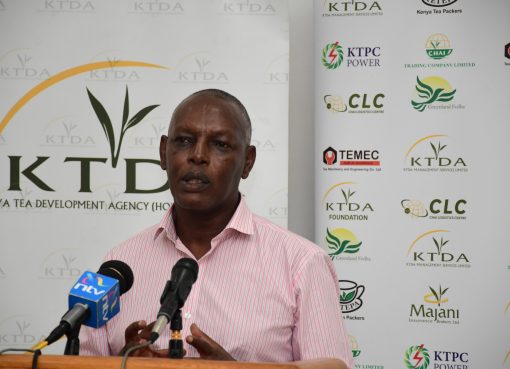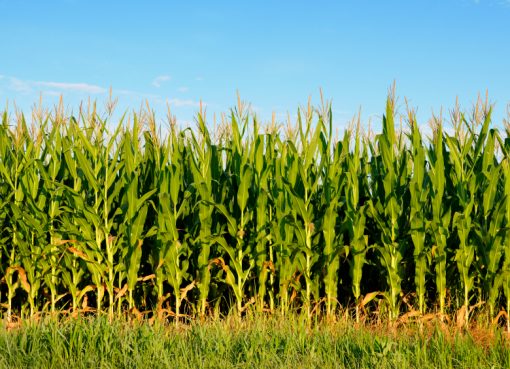The Nakuru County government is targeting to unlock the Sh. 25 billion potential in dairy sub sector within the devolved unit by addressing a number of challenges that have affected quality and quantity of milk produced.
The County Executive Committee Member for Agriculture, Dr. Immaculate Njuthe Maina says last year farmers in the region earned Sh. 9.6 billion from the sale of 291 million litres of milk.
During the period Nakuru was the third highest producer of milk in the country after Kiambu and Murang’a counties.
“We have received financial support from a World Bank funded programme to tackle challenges holding back the dair y sub sector. These include limited availability of quality and affordable feeds, inadequate infrastructure, including access roads and milk cooling facilities, limited extension services, low value addition to absorb surpluses during glut and limited access to markets and market information. The County has 310,000 dairy animals that yield an average of 5 litres per animal. This production is far below the global average of 24.5 litres per cow per day. We are working on new strategies to be adopted by farmers to increase milk production per animal to at least 15 litres which will translate to Sh 25 billion earnings annually,” explains the CEC.
The initiative funded by National Agricultural and Rural Inclusive Growth Project (NARIGP) is working on a strategy that targets to have dairy cooperatives in the county come together to form a union and facilitate installation of a dairy processing plant and a feed manufacturing units.
“It is envisioned that the plant will support farmers to access quality feeds and AI services as well as appropriate finance to support transition to commercial dairy farming.
This will make farmers earn more than the current prices that range between Sh.28 and Sh.35 per liter of milk against a background where currently half a litre of processed milk is retailing at over Sh.50” states Dr. Njuthe.
“Enhancing milk yield per cow can be achieved by adopting better production systems, including quality artificial
insemination (AI) services. Henceforth only qualified and licensed agricultural extension officers will be allowed to
administer AI services”, she said.
Nakuru is one of the 21 counties that are beneficiaries of the project that has been allocated Sh. 22.6 billion. It aims to increase agricultural productivity and improve food security in 420 selected wards in the county. The project is targeting 360,000 people countrywide.
In the Dairy Sub Sector, Dr. Njuthe states the project has been rolled out in Molo, Njoro, Kuresoi South, Bahati and Naivasha sub counties in 20 selected wards.
The Kenya Agricultural and Livestock Research Organization (KALRO) Pasture specialist, Dr. Naftali Ondabu says the county will unlock the untapped potential in the dairy sub sector if farmers are enabled to get drought resistant, high nutrient content and affordable fodder.
He suggests that the devolved unit facilitates trainings in the manufacture of animal feeds and that demonstration farms be established in strategic locations to equip dairy farmers with skills on growing, harvesting and storage of fodder to be used during dry seasons.
“KALRO’s role in the programme is to ensure that dairy farmers are accessing quality inputs, including supplemental feeds. They also need better veterinary and extension services and improved pasture” asserts Dr. Ondabu.
To address the milk marketing difficulties, the county is engaging majority of the producers who are currently practicing open grazing to move away from subsistence to commercial production with an aim of at least reaching the global daily average.
“Smallholder farmers have focused on the production and marketing raw milk in the informal market. Processing milk into value added products such as pasteurized milk, UHT milk, yoghurt, mala, cultured milk, cheese, butter and many others has not been considered due to lack of technology and skills.
Investing in better production technologies further involves improved feeding system thus creating more investment opportunities along the value chain through feed production” says Dr. Njuthe.
The Vice Chairman to Committee on Agriculture in Nakuru County Assembly, Wilson Mwangi said the initiative had set sight on international markets by ensuring production of high value milk that meets quality parameters such as right fat and water content among others.
“Training on milk handling and value addition is of paramount importance. Most farmers in the country produce raw milk that does not meet international standards, a factor that affects market and prices.” observes Mwangi.
Mwangi nonetheless insists that the potential may not be realized if the national government does not intervene and offer incentives and subsides to all stakeholders in the sub sector.
“Most importantly we need to stop cheap dairy products from neighbouring countries. The government must slap a high import duty on dairy products that can be readily sourced locally. Tax incentives should be extended to people dealing with raw materials used to manufacture animal feeds,” notes Mwangi.
He laments that brokers have taken the sub sector hostage by encouraging sale of milk in the informal markets at low prices. Mwangi called out on the Kenya Dairy Board to formulate policies that will improve profitability of the sub sector and protect the dairy farmer.
Njeri Mbugua, a dairy farmer from Menengai within Rongai Sub County also called on the government to lower taxes on raw materials used to manufacture animal feeds.
She challenged the county government to invest in training farmers on manufacture of animal feeds.
Her colleague, Wangare Maina noted that farmers were losing millions of shillings to bogus Artificial Insemination Service providers who did not supply the required quality breeds or served animals poorly leading to failure of the animals to conceive.
She urged the County government to extend grants to dairy farmers.
The National Agricultural and Rural Inclusive Growth Project (NARIGP) County Director, Peter Githunguri said the
initiative is exploring setting up of milk processing centers that will bring together all the dairy farmers to act as a
platform for advancing their needs as well as create more capacity to enhance and increase milk production for the market.
“Smallholders in the County travel long distances to markets to sell raw milk at low prices to middlemen or local traders a situation which reduces their negotiating power and further excludes women from the market.
Our work on the dairy value chain has been successful in demonstrating good practice in the commercialization of dairy farming in terms of improving productivity, organizing producers, strengthening farmers’ capacity, and linking farmers with formal markets. The intervention has reduced poverty among smallholder farmers, particularly women and landless people,” says Githunguri.
By Anne Mwale/Dennis Rasto




